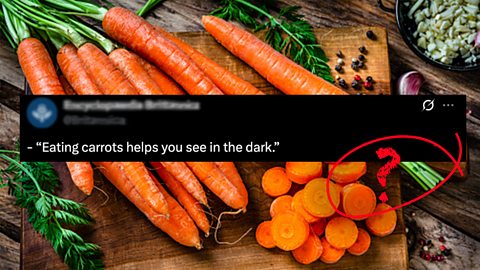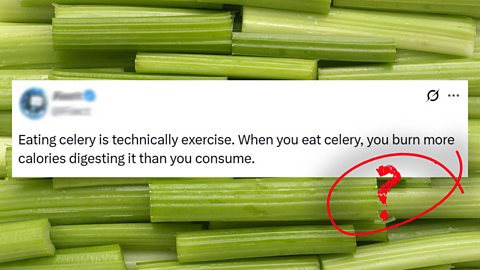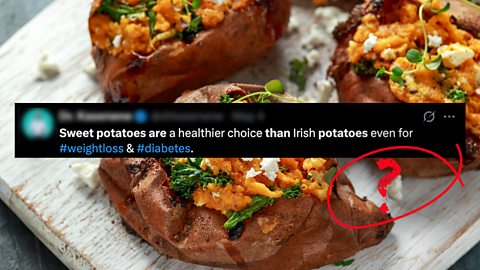Food and nutrition is now big business and as a result you see all kind of claims about how the stuff on our plates can work for or against you.
But how can you tell the fact from the fake? We’ve checked out three popular food claims, so you don’t have to.
Can carrots help you see at night?

It might sound like something from a superhero story but the belief that carrots help you see better in the dark can be traced back to World War Two.
To prevent the Germans finding out that Britain was using radar to intercept bombers on night raids, the Air Ministry issued press releases saying that British pilots were eating lots of carrots to give them excellent night vision.
Carrots are rich in something called beta-carotene. When we eat them our bodies turn it into a type of vitamin called retinol, which is great for keeping our eyes healthy. Other enzymes in the body turn retinol into retinal, which in turn helps create something called rhodopsin. This is found in cells at the back of our eye, which are responsible for our vision when light levels are low.
Whilst eating carrots can help keep the cells in your eyes healthy and functioning well, nutrition experts agree they won’t give you superhuman night vision or dramatically improve eyesight beyond its natural limits.
Does eating celery really burn calories?

One claim you may have heard is that celery is so low in calories that the simple act of chewing, burns off more calories than are actually in it. This would suggest that celery is a negative-calorie food, a concept that according to Dr Tim Garvey, chair of the Department of Nutrition Sciences at the University of Alabama, does not exist.
The crunchy vegetable is around 95% water, with the average celery stick containing between six and 10 calories. Chewing and digesting celery burns a fraction of those six calories (around one-fifth, according to Dr Garvey).
While celery is very low in calories and takes some energy to digest, you do not burn more calories digesting it than it provides.
Are sweet potatoes better for you than regular potatoes?

The sweet potato is arguably one of the heroes of the healthy eating world. They are full of nutrients including beta-carotene - which we now know is also found in carrots! But does this mean the sweet potato is ‘better’ than a regular spud when it comes to a healthier option food?
A ‘normal’ potato, the kind we see ready-packed in bags at the supermarket is not a vitamin-free zone. Its skin is full of fibre and contains nutrients such as potassium, iron, vitamin C and vitamin B6.
A 2024 study compared raw sweet potatoes with regular potatoes that were peeled and then either boiled or baked. The results were inconclusive when it came to deciding which was the 'healthiest'. While sweet potatoes were rich in micronutrients, traditional potatoes had less fat and sugar. So, instead of asking which potato is better, perhaps the real question is: which one best meets your specific nutritional needs?
Fact-checking a story helps us understand it more deeply rather than taking an old saying or recent opinions at face value. This guide explains how journalists verify information while reporting, helping to separate facts from fake news.

Not sure if the news you’re seeing on social media is true or false? Can you always tell if the things you see online are real or fake? Learn how to get the other side of the story with our quizzes, videos and explainers.


